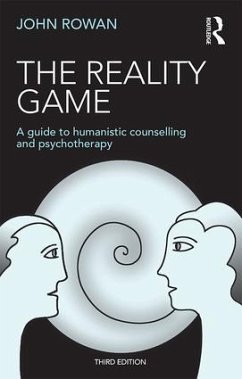
The Future of Training in Psychotherapy and Counselling
Instrumental, Relational and Transpersonal Perspectives
Versandkostenfrei!
Versandfertig in 2-4 Wochen
52,99 €
inkl. MwSt.
Weitere Ausgaben:

PAYBACK Punkte
26 °P sammeln!
John Rowan presents a challenging account of the current state of training. In an attempt to look afresh at the whole question of training he proposes that there are three ways of doing therapy: the instrumental, the authentic and the transpersonal way.













